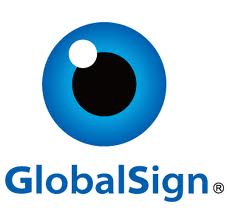To support the start of the UK’s “Get Safe Online Week”, part of Cyber Security Awareness Month, GlobalSign, the enterprise SaaS Certificate Authority (CA), is publishing some useful information to benefit today’s ever increasing online consumer community.
With advancements in technology, many consumers no longer need to leave the comfort of home to go shopping. Falling broadband costs and increasing usage of handheld devices, along with the many online savings to be made have diminished the need to go out to the high street to shop. In fact, according to a recent survey[1], a fifth (20%) of Brits now spend more on items purchased online than they do in store, while recent predictions in the US suggest that by 2017 10% of all sales will be made online, with mobiles devices accounting for 25% of those retail sales[2].
October marks the month for cyber security awareness and educational campaigns, and GlobalSign is providing the following top five tips that will not only help to ensure a safer online shopping experience, but also offer the consumer some helpful hints when it comes to online purchasing.
1) Look for “secure site” indicators: Shoppers should always look for the yellow padlock in browsers that indicates a website is using SSL – an encryption technology ensuring that the data sent to the retailer is encrypted and secure. A site using an SSL Certificate can also be identified by a website URL that commences with “https”, as opposed to the standard “http” of a non-secured site.
2) Protect your privacy and identity: Your privacy is important; protect it at all times to minimise the chance of identity theft. For sites requiring a user name and password to be set up as part of the buying process, try to use different combinations to the ones you use for banking, web mail and other accounts. If they start asking for details you think are irrelevant to the purchase, such as bank account details and date of birth, start questioning why. These details are not needed for a simple online purchase.
3) Be on the lookout for scams: Beware of unbelievable offers sent by email – regardless of whether you know of the retailer “offering” them. Phishers (fraudsters masquerading as known companies) send millions of emails daily and place thousands of online ads offering the best ‘cannot miss’ deals. If you receive an email or see an online advertisement, be sure to check the URL in the browser address bar. Be extra wary of IP addresses (such as and email addresses or websites containing a well-known brand name in conjunction with other lettering or numbers (e.g. www.globalsign-1.com).
4) Use a safe method of payment: Most credit cards offer protection on purchases, so use them wherever possible. Debit cards and other methods of payment usually offer a lower level of protection and may leave the consumer out-of-pocket while a claim is processed. If the merchant does not accept credit cards, or you do not have one, look for other methods of safe payment such as PayPal.
5) Get the details, keep the records: Make sure you know the merchant’s full address, especially if it’s outside of your own country, and double check the delivery costs and refund terms. This information will help you in case you run into any problems with delivery of items purchased.
People shop online because they view it as quicker, easier and they can find better bargains. By following this practical advice from GlobalSign, online shoppers can rest assured that their personal information remains safe and they can stay one step ahead of today’s ever increasing number of scammers.
For further information about how to “Get Safe Online” visit https://www.globalsign.co.uk, https://www.getsafeonline.org/ <US http://www.dhs.gov/national-cyber-security-awareness-month>
About GMO GlobalSign
GlobalSign has been a trust service provider since 1996. Its focus has been, and always will be, on providing convenient and highly productive PKI solutions for organisations of all sizes. Its core Digital Certificate solutions allow its thousands of authenticated customers to conduct SSL secured transactions, data transfer, distribution of tamper-proof code, and protection of online identities for secure email and access control. Vision and commitment to innovation led to GlobalSign being recognised by Frost & Sullivan for the 2011 Product Line Strategy Award. The company has local offices in the US, Europe and throughout Asia. For the latest news on GlobalSign visit www.globalsign.co.uk or follow GlobalSign on Twitter (@globalsign).
GMO Internet Group
GMO Internet Group is a comprehensive provider of industry-leading Internet solutions including domain name registration, cloud-based and traditional hosting, ecommerce, security, and payment processing services that each hold the top share of their respective markets in Japan. Other key business areas for the Group include online securities/FX trading, Internet advertising, search engine marketing and online research, and smartphone game development and publishing. GMO Internet, Inc. (TSE: 9449) is headquartered in Tokyo, Japan. For more information please visit http://www.gmo.jp/en.
[1] Latest E-Commerce Index from online marketplace Rakuten
[2] www.trendhunter.com/trend/us-online-retail
The opinions expressed in this post belongs to the individual contributors and do not necessarily reflect the views of Information Security Buzz.



